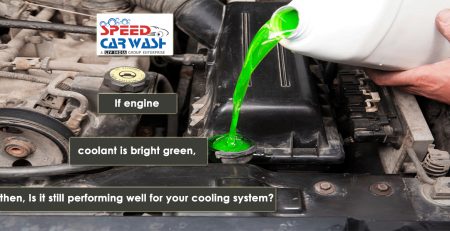Car care tips for summer
Summer is coming, and temperature will rise soon. Excessive heat could be tough for your car and cause serious breakdowns. You can avoid such issues and enjoy a cool and comfortable ride during summers by following these simple car care tips.
Summer can damage tires. Rising temperature affects tire pressure. Over or under inflated tires might blowout or cause accidents. Experts suggest checking the tire pressure on a regular basis, i.e. once a week, and keep them inflated at the recommended level. Vehicle’s fuel efficiency increases up to 3% if the tires are properly inflated. Change winter tires with summer or all-season tires, as winter tires get heavier during summer, and wear faster, too. Moreover, it reduces car’s fuel efficiency. Check tires for any damage or wear and alignment imbalance, before hitting the road.
Vehicles, usually, get overheated in summer. That said, heavy driving and long trips can also overheat the engine. Engine systems need thorough check during hot summer days and long trips. Check for the engine lubricant. If the oil gets dark in color or there is lots of grime and dirt, change the oil and replace the oil filter. Many technicians recommend changing engine oil every 3, 000 miles, while some manufacturer’s manual extend it up to 7, 500 miles. Check engine coolant levels and cooling fan, too.
Fill power steering, differential, coolant, transmission and brake fluids to recommended levels. In summer, use a 50/50 mixture of antifreeze and water for coolant. Check for fluid leakage. Take your car to a service station for check-up and repair.
Make sure that hoses remain firm, especially around clamps, connected to the engine or radiator. Check hoses and belts for cracks and wear. Due to excessive wear, the belt might get smooth. That said, the belt failure risk increases after 36, 000 miles. So, if your car has crossed the recommended limit, consult with a mechanic or your owner’s manual.
If the brakes pedal feels spongy, resistant or hard, or making a constant and loud sound, it’s time to change it. You can avoid costly future repairs by repairing or changing brakes on time.
The car’s AC units require service every three years. Most air conditioning units damage or malfunction due to the low level of refrigerant. Consult a professional, if your AC unit has any leakage problem or low refrigerant levels.
A filthy air filter affects engine’s efficiency and mileage. If it gets dirty or blocked, change it immediately. Experts advice replacing it every 12,000 miles, but if you usually drive in dirt or dessert area change them more often.
Replace the old, cracked or leave streaks wipers for better visibility during summer storms or dusty weather.
Keep your car clean from inside and out and also lighten upload of unnecessary items. This will give a more relaxed and comfortable ride during hot summer days. Regular maintenance and tune-up ensure hassle-free and safe journey.
Always park your car in a shady area or wrap in its cover. The sun can damage vehicle’s bodywork, fade its paint and heat the cabin. Don’t let unnecessary items around in the vehicle, as they may retain heat and increase the load on AC unit. Keep a small napkin or towel over the steering so that it will remain cool and don’t get you sweat in a fist.








